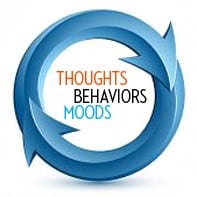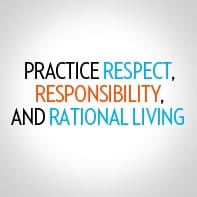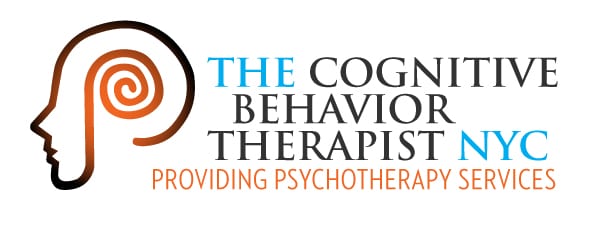Expert psychologists and top psychotherapists recommend using concrete goals as a way to benchmark gains to maintain progress in psychotherapy and prevent patients from backsliding in therapy. Cognitive Behavior Therapist and psychologist Dr Jayme Albin, who practices CBT, EMDR, Psychotherapy and Yoga/Biofeedback Therapy in New York City recommends creating personal “Goal Posts” to prevent bad habits from resurfacing and interfering with successful gains achieved in therapy.
A common CBT method for avoiding bad habits and keeping them from creeping back into healthy behaviors and emotions is known R and R (Regulation and Response). This is a type of response prevention technique. This technique requires you to self-monitor and then immediately respond to small changes before they get out of hand and lead to bad habits that interfere with positive behaviors, relationships and stable emotions.
Psychologist in New York Specializing in Anxiety, Depression and PTSD
How to do this:
1. Create concrete “goal posts” that signal to you that your behavior is starting to backslid and bad habits are starting creep in. Some rules: these must be specific and measurable goals and easy to recognize.
2. Create a stable and consistent response plan. This plan must be specific, actionable immediately and counteract your bad habits.
3. When you reach or surpass your “goal posts” you MUST be committed to activating your plan. No excuses, such as “I am on vacation”, “I feel….”, or “I don’t feel…”, “This is different because …”
4. Activate support techniques to help the plan go smoothly such as doing relaxation exercises (see Dr. Jayme Albin -NYC psychologist -post on Breathing techniques) and challenge your thoughts (See Dr. Jayme Albin-NYC psychologist) on Changing your thinking style)

Here are some examples:
1. Let say you have an anger problem and your past bad habit are to curse, yell and scream. Your “Goal Post” behavior is hearing yourself say a curse word. This goal post acts as a signal that you are about to enter into an old bad pattern and let your anger take over. Your response plan is then to: a. activate a relaxation exercise, b. postpone the argument and c. do a thought log challenging your reactionary thoughts and feelings
2. Lets say you have an anxiety problem and “fear of” has kept you from living life. Your past bad habit are to avoid social encounters and stay home unless it’s essential you leave the house. Your “goal post” is staying home 2 weekends in a row and let your anxiety and fear of people keep you from getting there and meeting someone. You then can activate your response prevention plan to stop making excuses and avoiding people. Your response plan is then to commit to a social interaction in the next few days. Your support and coping techniques are to some breathing techniques regularly and return to your coping statements such as “I am lovable, people are not judging me more than others”
3. Let’s say you are weight obsessed. Your past bad habit are to order french fries and dessert. Your goal post behavior are gaining 5lbs or ordering french fries and dessert 2 days in a row You use this as a signal that you are making indulgent choices without being mindful of long term weight goals. Your response plan is to return to your structure diet until the pounds come off Your support plan is to speak to a friend, workout out for 20 minutes at a minimum 4 times that week and return to thought challenging statements about food such as “French fries are only going to make me temporarily happier.
4. Let’s say you are depressed. Your past bad habits are to stay in bed and procrastinate getting dressed or doing work. Your “goal point behavior” is sleeping more than 14 hours or staying in bed all day more than one day. You use these as behavior signs that you are contributing to your own depression. Your CBT response prevention plan is commit to yourself to get out of bed at a reasonable time, shower and go for a walk each day for the next week. No excuses! Your support therapy plan is to reactivate challenging your depression thoughts and spend time with friends.

How you can do it:
- What is your problem of focus? What are your bad habits of choice ?
- What can you make as your “Goal Post Behavior”- that signals you are back sliding? CBT Tip: This must be a concrete behavior so you can identify it immediately.
- What is your replacement response prevention plan? This need to be concrete and firm and accessible no matter where you are
- Don’t wait until you back-slide to bad habits to create this plan s. If you do you will end up returning to old bad habits and feel guilty, lose motivation and start to blame yourself or others.
Copyright Albin MA Corp 2014
For more information about how to apply CBT to help you manage anxiety, depression, anger or other related problems please contact our New York City Offices at 212-631-1133 DrJayme@askthecbt.com
We are located in Midtown Manhattan, New York 10022















